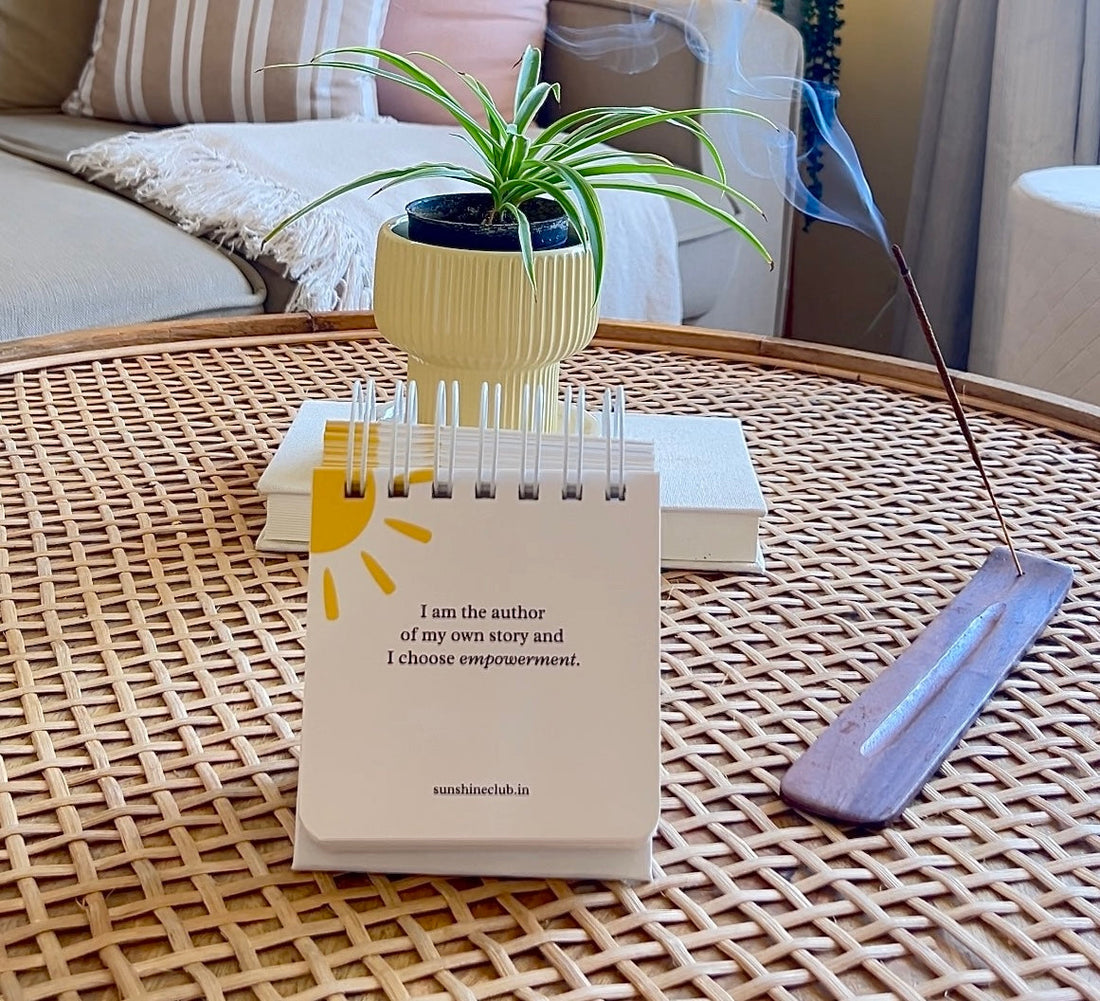
Do affirmations really work?
Share
Affirmations have gained popularity as a tool for personal development, mental well-being, and self-confidence. These positive statements are designed to challenge negative thinking and reinforce constructive beliefs. But the question remains: Do affirmations really work? The answer depends on how they are used, the individual’s mindset, and the specific goals they aim to achieve. Let’s explore the effectiveness of affirmations, the science behind them, and the best practices for making them work.
The Science Behind Affirmations
Research in psychology and neuroscience suggests that affirmations can be effective when applied correctly. Here are some key insights:
1. Neuroplasticity: The brain’s ability to reorganize itself by forming new neural connections plays a significant role in how affirmations work. Repeating positive statements consistently can help reinforce pathways associated with optimistic thinking and diminish negative thought patterns. Over time, this rewiring can shift an individual’s mindset.
2. Self-Affirmation Theory: Developed by social psychologist Claude Steele, this theory suggests that affirmations work because they help maintain self-integrity. By focusing on values and strengths, affirmations can buffer against threats to self-esteem and reduce stress.
3. Stress and Performance: Studies have shown that affirmations can reduce stress and improve performance. For example, a 2015 study published in Personality and Social Psychology Bulletin found that individuals who practiced self-affirmations performed better under pressure, as their focus shifted from fear of failure to confidence in their abilities.
When Do Affirmations Work Best?
While affirmations can be powerful, their effectiveness depends on several factors:
1. Belief in the Affirmation: If an affirmation feels unrealistic or disconnected from your current reality, it’s less likely to resonate. For instance, saying “I am a millionaire” when you’re struggling financially might feel disingenuous. A better approach would be affirming, “I am capable of creating financial abundance.”
2. Consistency: Affirmations require repetition to have a lasting impact. Just as negative thoughts take root through habitual repetition, positive affirmations must be reinforced consistently to reshape thought patterns.
3. Emotional Connection: The more emotionally connected you feel to an affirmation, the more effective it will be. Affirmations that align with your personal goals, values, and aspirations are more likely to create lasting change.
4. Action-Oriented Approach: Affirmations alone won’t bring about change unless accompanied by action. For example, affirming “I am improving my health” is powerful when paired with tangible steps like exercising or eating nutritious meals.
When Affirmations May Not Work
There are scenarios where affirmations may be less effective or even counterproductive:
1. Deep-Seated Negative Beliefs: If someone struggles with deeply ingrained negative self-talk, affirmations might feel superficial or even trigger resistance. In such cases, combining affirmations with therapy or cognitive-behavioral techniques may be more effective.
2. Lack of Authenticity: Affirmations that feel forced or inauthentic can fail to resonate. Instead of motivating change, they might highlight the gap between the affirmation and reality, creating frustration.
3. Unrealistic Expectations: Affirmations are not a magic solution. Expecting them to work instantly or solve all problems without effort can lead to disappointment.
How to Make Affirmations More Effective
1. Personalize Them: Tailor affirmations to address your unique challenges and aspirations. For instance, if you’re working on self-confidence, affirmations like “I trust myself to handle challenges” will feel more relevant than generic statements.
2. Use Present Tense: Frame affirmations as if the desired state is already true. For example, say “I am calm and confident” instead of “I will be calm and confident.”
3. Combine with Visualization: Pair affirmations with mental imagery. Visualize yourself embodying the affirmation, such as confidently delivering a presentation or achieving a personal goal.
4. Integrate into Daily Life: Repeat affirmations during specific moments of your routine, such as in the morning, during meditation, or before bed.
5. Focus on Progress: Choose affirmations that emphasize growth rather than perfection. For instance, “I am becoming more patient and understanding every day” is empowering and realistic.
Real-Life Examples of Affirmations in Action
Many people have successfully used affirmations to achieve personal growth. Athletes, for instance, often use affirmations to maintain focus and confidence under pressure. Similarly, individuals practicing mindfulness use affirmations to cultivate gratitude and reduce anxiety. In professional settings, affirmations can inspire resilience and improve performance during challenging projects or presentations.
Do Affirmations Really Work?
Yes, affirmations can work when used effectively. They are not a cure-all but can be a valuable tool for rewiring negative thought patterns, boosting self-confidence, and motivating action. Their effectiveness depends on your belief in the affirmation, the consistency of your practice, and your willingness to pair them with meaningful actions. By using affirmations authentically and intentionally, you can harness their potential to create lasting positive change in your life.








